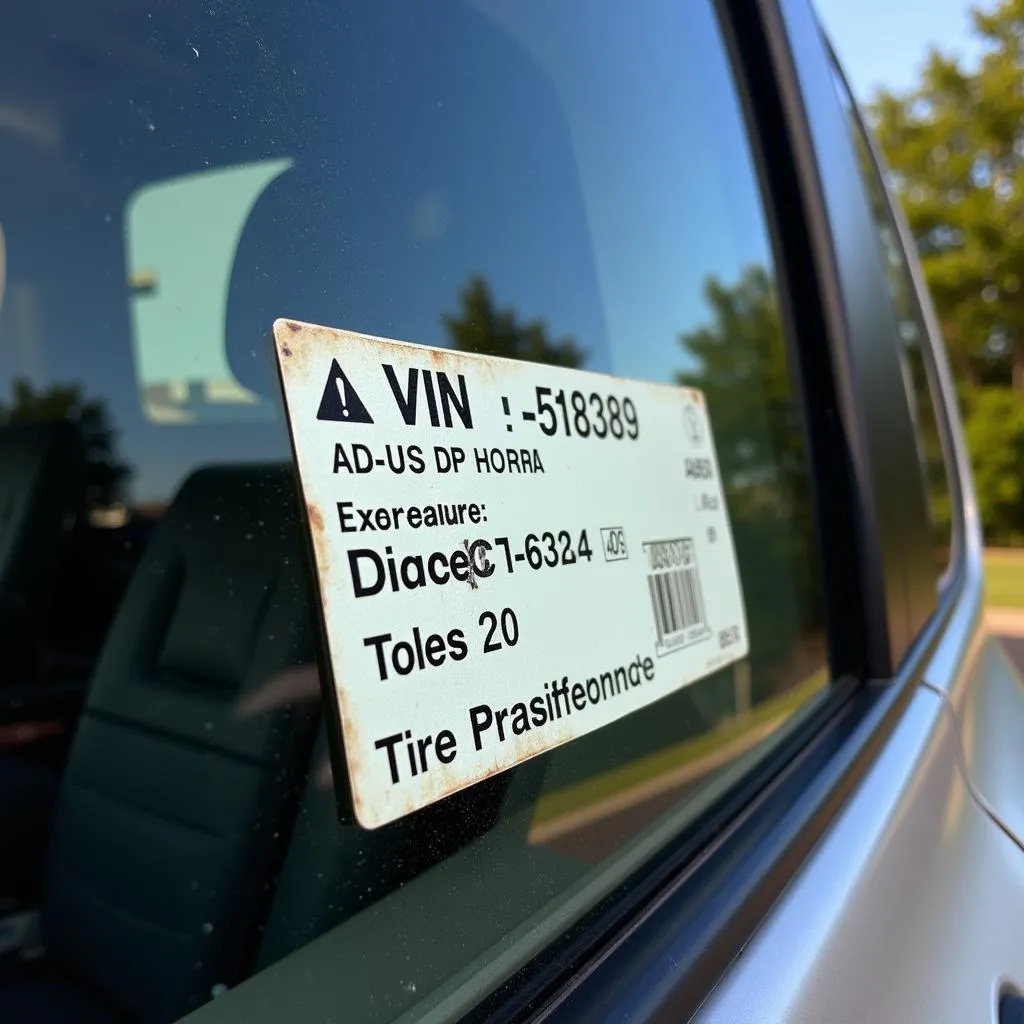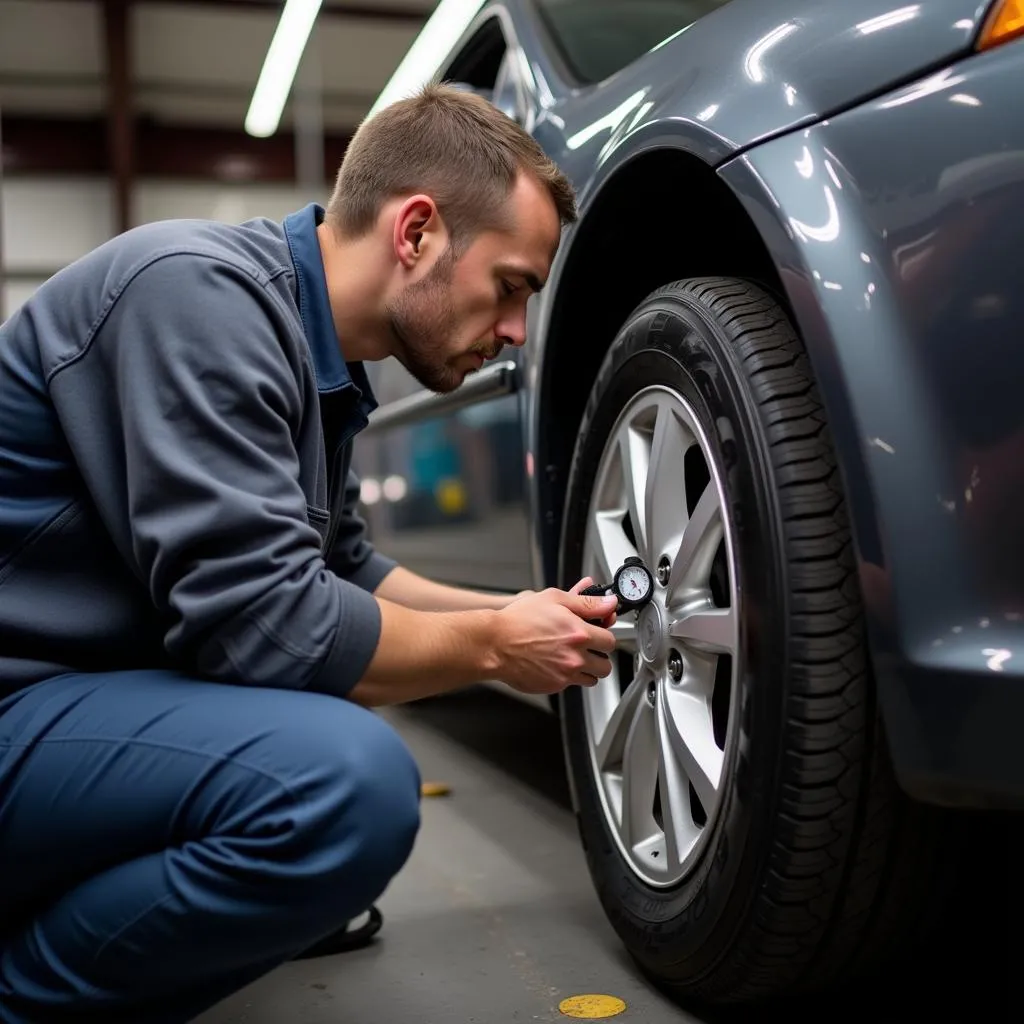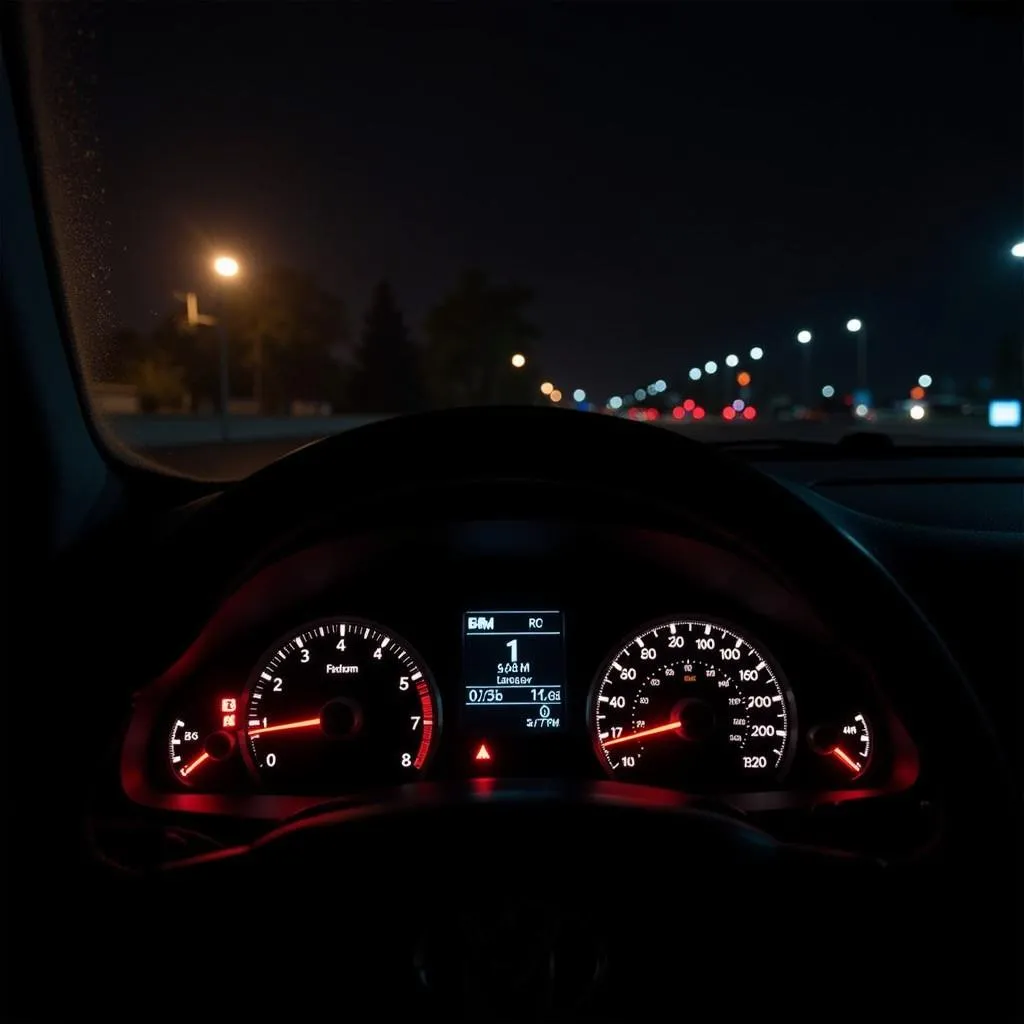Ever opened your glove compartment and found a random sticker staring back at you? Or maybe you spotted a faded one on your car window, wondering what it meant? Stickers inside cars are more than just decorative decals; they often carry important information about your vehicle’s history, maintenance, and safety features. This article delves into the world of these often-overlooked markers, explaining their purpose and helping you decipher their cryptic codes.
 Car window sticker displaying VIN and tire pressure information
Car window sticker displaying VIN and tire pressure information
Types of Stickers and Their Meanings
Stickers inside your car can be broadly categorized into a few key types:
1. Vehicle Identification Number (VIN) Stickers
The VIN is like your car’s fingerprint, a unique 17-character code that identifies its specific features and manufacturing details. You’ll typically find this sticker on the driver’s side door jamb, visible when the door is open. It might also be located on the dashboard near the windshield.
Why is the VIN Sticker Important?
- Vehicle History: Provides crucial information for vehicle history reports, helping you uncover potential accidents, repairs, or title issues, especially when buying a used car.
- Insurance and Registration: Used by insurance companies to determine premiums and by authorities for registration purposes.
- Parts Ordering: Ensures you get the correct parts compatible with your car’s specific make, model, and year.
2. Tire Information Stickers
This sticker, usually found on the driver’s side door jamb or inside the fuel filler door, provides crucial information about your tires:
- Recommended Tire Pressure: Maintaining the correct tire pressure ensures optimal performance, fuel efficiency, and safety.
- Tire Size: Indicates the appropriate tire dimensions for your car, crucial when replacing tires.
- Load Capacity: Specifies the maximum weight your tires can safely carry.
 Mechanic checking tire pressure using a gauge
Mechanic checking tire pressure using a gauge
3. Safety and Emissions Stickers
- Airbag Information: Stickers indicating the presence and location of airbags are crucial for safety, especially for first responders in case of an accident.
- Safety Certification: Look for stickers certifying that your car meets federal safety standards.
- Emissions Standards: These stickers verify that your vehicle meets environmental regulations regarding emissions.
4. Service Reminder Stickers
These stickers, often placed on the windshield or inside the glove compartment, remind you of upcoming maintenance tasks:
- Oil Change: Tracking your oil change intervals is essential for engine health and longevity.
- Filter Replacements: Regular replacement of air and cabin filters ensures clean air inside your car and optimal engine performance.
5. Aftermarket Stickers
These are often added by previous owners and can include:
- Parking Permits: Indicate permission to park in specific lots, often found on windshields or rear windows.
- Toll Tags: Allow for electronic payment of tolls, usually placed on the windshield.
- Decorative Stickers: Reflect personal interests, hobbies, or affiliations. However, be mindful of stickers that could obstruct your view.
What to Do If a Sticker is Missing or Damaged
A missing or damaged sticker, especially the VIN or tire information sticker, can be problematic. If you encounter this issue:
- Contact the Dealer: Your car manufacturer’s dealership can often provide replacement stickers based on your VIN.
- Consult a Trusted Mechanic: Experienced mechanics may be able to source accurate information or direct you to specialized services for sticker replacement.
Beyond the Obvious: Unraveling Hidden Clues
Some stickers might seem insignificant, but they can offer valuable insights into your car’s past:
- Dealership Stickers: These can help trace the car’s ownership history or previous service locations.
- State Inspection Stickers: Indicate where the car was previously registered and inspected.
- Aftermarket Part Stickers: May reveal modifications or upgrades made to the car.
 Car dashboard illuminated with various warning lights
Car dashboard illuminated with various warning lights
Stickers: Silent Guardians of Your Car’s Story
While they may seem like insignificant pieces of adhesive, stickers inside your car play a crucial role in communicating important information about your vehicle. By understanding their meaning, you can ensure your car’s safety, maintain its performance, and make informed decisions about its upkeep. So, the next time you spot a sticker inside your car, take a moment to decipher its message – it might just be telling you something important.
FAQs about Stickers Inside Cars
1. Can I remove aftermarket stickers from my car?
Yes, you can usually remove aftermarket stickers carefully using a hairdryer to soften the adhesive and a plastic scraper to peel them off.
2. What should I do if my VIN sticker is completely illegible?
Contact your car manufacturer’s dealership; they can often generate a new VIN sticker based on your car’s records.
3. Are all service reminder stickers accurate?
While service reminder stickers can be helpful, it’s best to consult your car’s owner’s manual for recommended maintenance intervals and consult a trusted mechanic for personalized advice.
4. Can I get a replacement for a missing tire information sticker?
Yes, your car dealership or a reputable tire shop should be able to provide a replacement tire information sticker based on your car’s specifications.
5. Do I need to keep old state inspection stickers on my car?
No, once your car passes a new inspection, you can remove the old sticker.
6. Can decorative stickers damage my car’s windows?
While most stickers won’t damage your windows, removing them improperly can leave adhesive residue. Using a hairdryer can help soften the adhesive for easier removal.
7. Do I need to remove all stickers before selling my car?
It’s courteous to remove personal stickers before selling your car but keep informational stickers like the VIN and tire information intact.
Remember, understanding the language of stickers inside your car can empower you to be a more informed and proactive car owner.
If you need assistance with any car-related issues, our team at Tech Car USA is here to help. Contact us via WhatsApp at +1(641)206-8880, email us at [email protected], or visit our workshop at 276 Reock St, City of Orange, NJ 07050, United States. Our dedicated customer support team is available 24/7 to assist you.
Want to learn more about building a toy car? Check out our article: build toy car kit.
Interested in unique car designs? You might enjoy our piece on the: lego grimace car.
